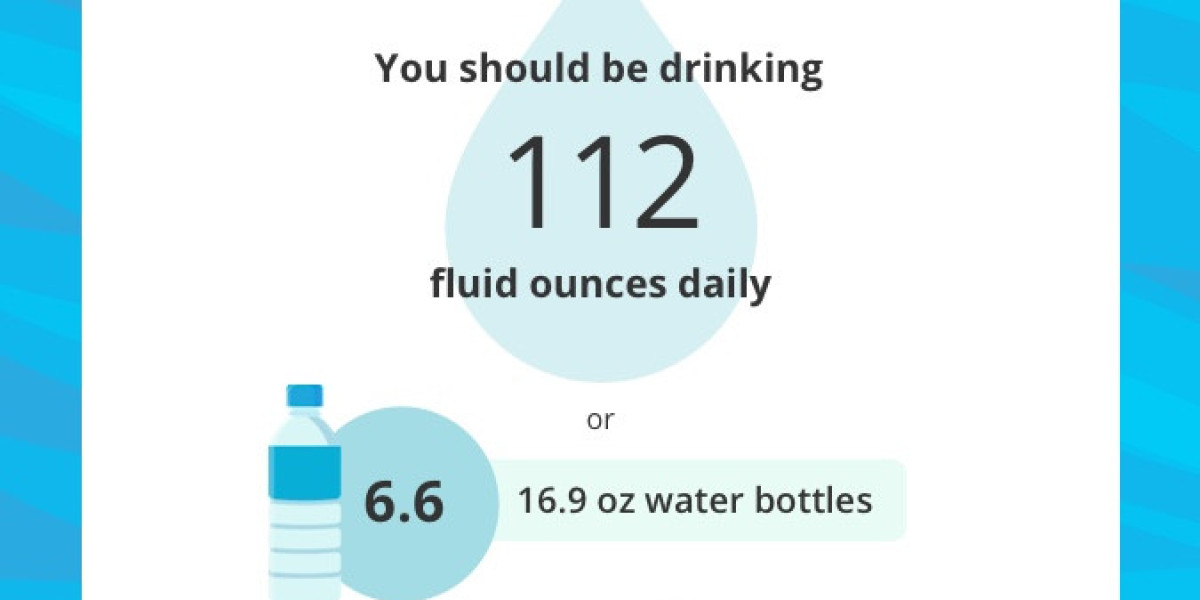Proper hydration is crucial for maintaining overall health and wellness. While water is essential for life, determining how much water you should drink daily can be complex. This Daily Water Intake Calculator is designed to help you understand your individual water needs based on various factors, ensuring that you stay hydrated and healthy.
Why Hydration is Important
Water plays a vital role in almost every bodily function. From regulating body temperature to aiding digestion and maintaining skin health, water is indispensable. Dehydration can lead to a host of problems, including headaches, fatigue, and even more severe health issues. On the other hand, overhydration can strain your kidneys and dilute essential electrolytes in your blood. Therefore, understanding the right amount of water to consume daily is critical for your well-being.
Factors Influencing Daily Water Intake
Several factors influence how much water you should drink each day. While the commonly recommended eight glasses per day is a good starting point, it doesn't account for individual differences. The following factors are essential in determining your daily water intake:
1. Body Weight
The amount of water you need is directly proportional to your body weight. Generally, the more you weigh, the more water you need. A commonly used formula is to drink half an ounce to one ounce of water per pound of body weight.
2. Activity Level
If you lead an active lifestyle or engage in strenuous physical activities, your water needs will be higher. Exercise causes you to lose water through sweat, so it’s crucial to replenish this lost fluid. For intense workouts, you might need an additional 8 to 16 ounces of water per hour of activity.
3. Climate and Weather Conditions
Your environment significantly impacts your hydration needs. If you live in a hot or humid climate, you will naturally sweat more, increasing your need for water. In contrast, those in colder climates might require less, but don’t neglect hydration, as cold weather can also lead to dehydration.
4. Diet and Nutrition
Your diet also influences your water requirements. High-protein diets, for example, require more water to help your kidneys process the additional nitrogen. Similarly, if you consume a lot of salty or sugary foods, your body will need more water to balance out the excess sodium and sugar.
5. Health Conditions
Certain health conditions can affect how much water you need. For instance, if you have a fever, diarrhea, or vomiting, your body loses more fluids than usual. In such cases, increased water intake is necessary to prevent dehydration.
How to Use the Daily Water Intake Calculator
Our Daily Water Intake Calculator is designed to consider the above factors to provide you with a personalized hydration plan. Here’s how you can use it:
Input Your Weight: Start by entering your current body weight. This will serve as the base for calculating your daily water needs.
Select Your Activity Level: Choose your activity level from the options provided. This helps the calculator account for additional water needs due to physical exertion.
Consider Your Climate: Indicate whether you live in a hot, humid, cold, or temperate climate. The calculator will adjust your recommended water intake based on these environmental factors.
Factor in Your Diet: If your diet is high in protein, salt, or sugar, the calculator will increase your water intake recommendation to accommodate these factors.
Account for Health Conditions: If you are experiencing any health conditions that might affect your hydration, make sure to note these. The calculator will suggest a higher water intake if necessary.
Understanding Your Results
Once you’ve input all the necessary information, the Daily Water Intake Calculator will provide you with a precise amount of water you should aim to drink each day. This result is personalized to your unique circumstances and will help you maintain optimal hydration levels.
Daily Water Goals
Your results will include a specific target in ounces or liters. This goal will help you stay on track throughout the day. You might find it helpful to break down this total into manageable amounts to drink every hour or set reminders to ensure you’re meeting your target.
Adjusting for Activity
If you have an unusually active day, don’t forget to adjust your water intake accordingly. Our calculator allows you to revisit and recalculate your needs based on changes in activity level or other factors.
Special Considerations
For pregnant or breastfeeding women, or those with specific medical conditions, it’s advisable to consult with a healthcare professional in addition to using the calculator. They can provide guidance tailored to your individual health needs.
Tips for Staying Hydrated
Knowing your daily water intake is just the first step. Here are some practical tips to help you meet your hydration goals:
Carry a Water Bottle: Keeping a reusable water bottle with you throughout the day makes it easier to sip water regularly.
Set Reminders: Use your phone or a hydration app to set reminders to drink water at regular intervals.
Infuse Your Water: If plain water doesn’t appeal to you, try infusing it with fresh fruits like lemon, lime, or berries to add flavor without added sugars.
Monitor Your Urine: A simple way to check if you’re hydrated is to monitor the color of your urine. Light yellow typically indicates good hydration, while dark yellow suggests you need to drink more water.
Eat Water-Rich Foods: Incorporate foods with high water content into your diet, such as cucumbers, melons, oranges, and soups, to boost your hydration.
Long-Term Hydration Strategies
Maintaining proper hydration is a long-term commitment to your health. Consider these strategies to stay hydrated consistently:
1. Develop a Routine
Create a daily routine that includes drinking water at set times, such as first thing in the morning, before meals, and during exercise.
2. Monitor Your Intake
Keep track of your water consumption using a journal or an app. Regularly monitoring your intake can help you identify patterns and make adjustments as needed.
3. Educate Yourself
Stay informed about the signs of dehydration and overhydration. Being aware of how your body responds to different hydration levels will help you make better choices.
4. Encourage Healthy Habits
Encourage family and friends to join you in developing healthy hydration habits. A supportive environment can make it easier to stay on track.
Conclusion
Hydration is a fundamental aspect of health that should not be overlooked. Our Daily Water Intake Calculator provides a personalized approach to determining your hydration needs, taking into account your unique lifestyle, environment, and health conditions. By following the recommendations and tips outlined in this guide, you can ensure that you stay properly hydrated, supporting your overall health and well-being.
Remember, while the calculator offers a precise estimation, it’s essential to listen to your body and adjust your water intake as needed. Stay hydrated, stay healthy, and make water intake a priority in your daily routine.








